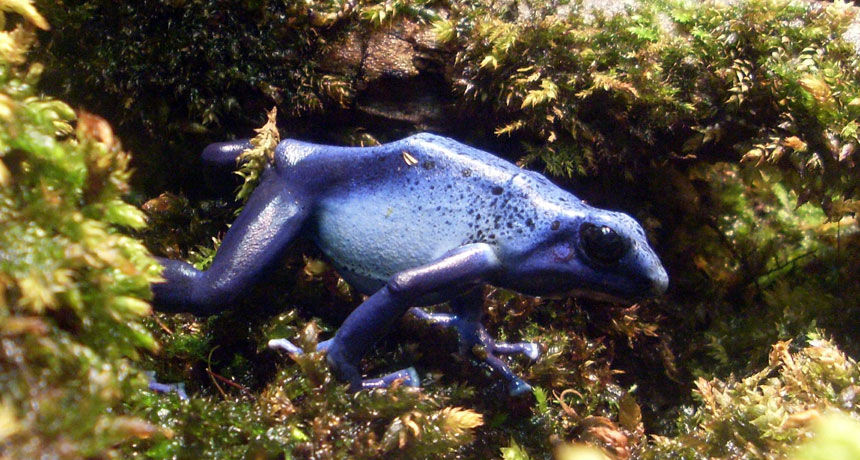Scientists Say: Toxin
This refers to any substance that can kill or harm an organism — and came from a living organism

Don’t touch! This lovely frog’s colors are a sign that it secretes a toxin.
Abi Skipp/Flickr (CC-BY-2.0)
This refers to any substance that can kill or harm an organism — and came from a living organism

Don’t touch! This lovely frog’s colors are a sign that it secretes a toxin.
Abi Skipp/Flickr (CC-BY-2.0)